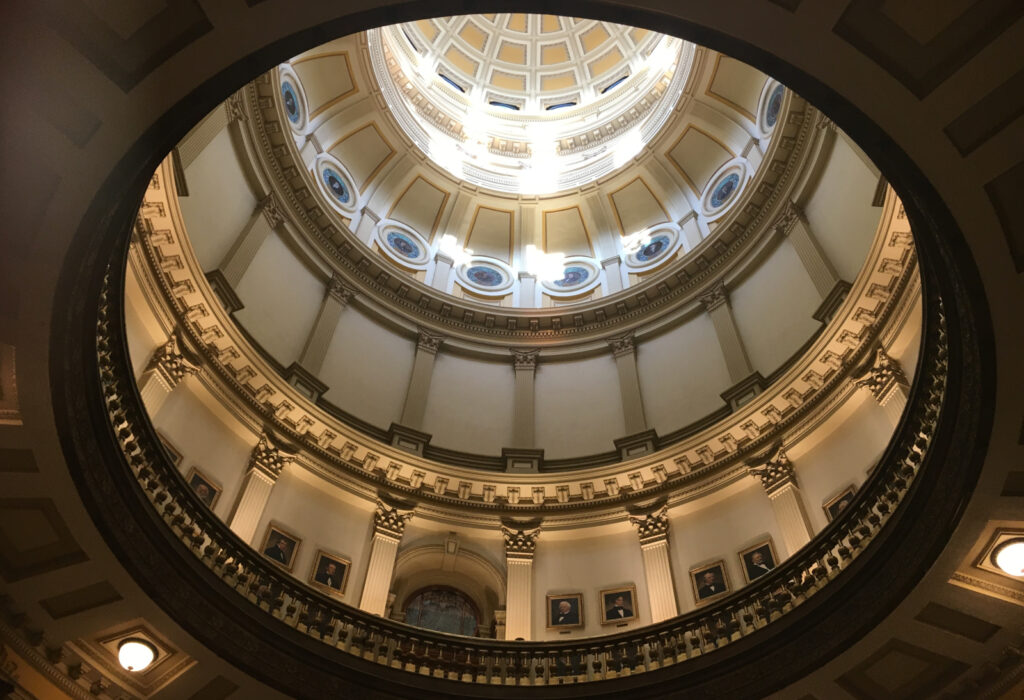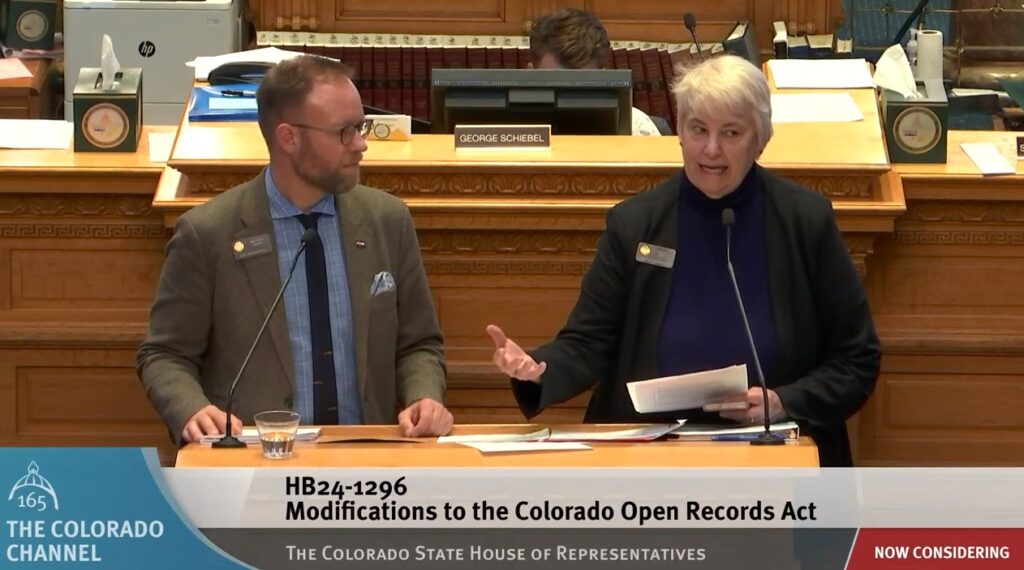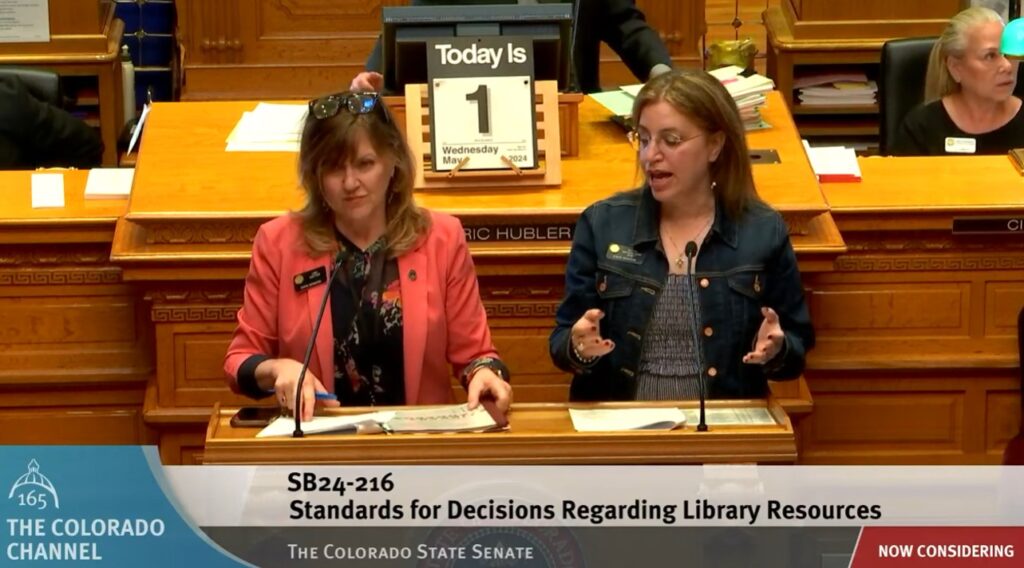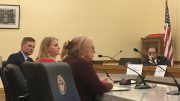By Jeffrey A. Roberts
CFOIC Executive Director
It could have been worse.
While open-government losses far outnumbered wins in the 2024 session of the Colorado General Assembly, which ended Wednesday, the death of a burdensome Colorado Open Records Act bill in the closing days helped make the final tally a little less one-sided.
Setting the tone was the enactment, ironically during Sunshine Week in March, of a leadership-sponsored measure that narrowed the definition of “public business” as it applies to members of the General Assembly and lets state lawmakers communicate by email and text message without having to worry about violating the Colorado Open Meetings Law.
Legislators exempted themselves from portions of the 52-year-old, citizen-initiated law after being sued twice during the past year over alleged open meetings law violations. Senate President Steve Fenberg, D-Boulder, said Senate Bill 24-157 was needed to “create clarity, to codify what is essentially current guidance that we already operate under and to remove gray areas so that everyone has a shared understanding of how to follow the law.”

He insisted “the purpose of the bill was never to reduce transparency in any way.” But the Colorado Freedom of Information Coalition said the exemptions will encourage legislators to formulate and debate public business in an unlimited way via email, text message and ephemeral messaging apps such as Signal without the public’s knowledge and scrutiny. If such electronic communications haven’t already been deleted, CFOIC stressed, they likely would not be available to request because CORA excludes “[a]ll documents prepared or assembled by a member of the general assembly relating to the drafting of bills or amendments” from the definition of “public records.” Those are considered “work product.”
An initiative proposed by Jon Caldara, president of the libertarian Independence Institute, would repeal the provisions of SB 24-157. But it would cost as much as $1 million to collect the necessary petition signatures to get it on the November statewide ballot.
Had the CORA bill also passed, the 2024 legislative session would have been even more regressive for government transparency in Colorado.
Rep. Cathy Kipp, D-Fort Collins, said she introduced House Bill 24-1296 to rein in the “abuse of CORA” experienced by government agencies “already stretched pretty thin.”
Her initial proposal not only lengthened CORA response times but also allowed records custodians to label certain annoying or harassing people as “vexatious” and bar them from obtaining public records for 30 working days. It additionally: 1) limited public inspection of government employee calendars to thwart “stalking”; 2) included a broad new exemption allowing the withholding of “any record containing information that, if disclosed, would invade another individual’s personal privacy”; and 3) allowed a records custodian to treat multiple CORA requests made by the same person within 14 days as one request — ensuring the requester got only one free hour before “research and retrieval” charges kicked in.

Although Kipp and co-sponsoring Rep. Matt Soper, R-Delta, watered down subsequent versions of the bill — also exempting the news media from several provisions — CFOIC argued against creating additional obstacles for requesters of public records, especially when exorbitant fees already can be a significant barrier to obtaining public records. Because of an inflation factor built into CORA since 2014, state and local government entities starting July 1 will be allowed to charge an hourly rate to process requests that likely exceeds $40 after providing the first hour at no charge, up from the current maximum rate of $33.58. CFOIC also noted that response delays beyond CORA’s current deadlines are common.
HB 24-1296 passed the House, but died May 1 when the Democratic chair of the five-member Senate State, Veterans and Military Affairs Committee voted against it along with two Republicans.
CFOIC also spoke out against a provision in Senate Bill 24-210, sent to Gov. Jared Polis on Monday, that will give county clerks up to 20 working days to comply with CORA requests in a period starting 60 days before an election and ending when a clerk certifies the official abstract of votes cast. The bill passed with an amendment suggested by the Colorado Press Association that exempts requests made by journalists from the extended deadlines. Another amendment, adopted after testimony and inquiries made by CFOIC, limits the extended deadlines to requests for “election-related” records, rather than any records kept by county clerks.
Here is a roundup of other 2024 government transparency, freedom-of-information, First Amendment and press-related bills tracked by CFOIC:
Child autopsies. House Bill 24-1244 was another measure made less opaque with amendments sought by the press association, the Colorado Broadcasters Association and CFOIC. Sent to Polis in April, the measure makes autopsy reports on the deaths of minors confidential but requires the public release of summary information about a deceased child’s autopsy including 1) cause of death; 2) time, place and manner of death; and 3) age, gender and race or ethnicity of the minor. Lawmakers were persuaded to add the child’s name to the summary.
Livestreaming meetings. House Bill 24-1168 would have required state and local boards, councils and commissions to livestream many of their meetings as a way to expand access to government for people with disabilities. But the measure never made it out of the House Appropriations Committee because of its estimated $1.4 million state fiscal note. The bill additionally would have required public bodies to 1) offer a remote public comment option at meetings where public comment is heard and 2) post meeting materials at least 24 hours before a meeting or “as soon as practicable.”
School employee evaluations. Senate Bill 24-132, signed into law by Polis in April, greatly expands the number of public-school employees whose evaluations are confidential and not subject to disclosure under CORA. The Senate sponsor insisted the bill wouldn’t hinder the disclosure of disciplinary records, but in a case before the Colorado Court of Appeals, the Denver School Leaders Association argues that the educator evaluation statute bars the release of administrators’ disciplinary records to The Denver Gazette.
Body-cam footage fees. The House earlier this month killed a proposal to protect law enforcement whistleblowers that also included a ban on charging fees for unedited body-worn camera footage released to the public under the 2020 Law Enforcement Integrity Act. House Bill 24-1460 would have addressed demands by the Boulder Police Department and some other agencies for hundreds or thousands of dollars before providing video of incidents in which there is a complaint of officer misconduct. The defeated measure also clarified that the footage-release deadlines in the Law Enforcement Integrity Act apply to officer-involved shootings.
Library book bans. A bill to protect Colorado librarians from “culture war extremists,” sent to Polis on Wednesday, includes a provision that restricts anonymity for people who want books removed from circulation or reclassified on library shelves. Senate Bill 24-216 makes public library “request for reconsideration” forms subject to CORA, rather than being protected from disclosure by Colorado’s library-user statute, as the Court of Appeals ruled last year. Among other provisions, it requires any person who fills out a form to “reside in the legal service area for the library in which the request is made and it requires library boards to create written policies for the acquisition, retention, display and use of library resources and facilities.

Rep. Don Wilson, R-Monument, said the CORA provision “sounds like we are scarlet-lettering individuals who participate in the process.” The House sponsor of the bill, Rep. Junie Joseph, D-Boulder, said the request-for-reconsideration process should be “transparent.”
Legislative caucus meetings. A House committee killed House Bill 24-1303, which would have codified 41-year-old case law by making the legislature’s political party caucuses subject to the open meetings law, but it also would have exempted all affinity caucus meetings (such as those created by Black, Latino and LGBTQ lawmakers) from the law’s notice and minutes requirements. Rep. Elisabeth Epps of Denver, one of two Democrats who sued the House of Representatives in 2023 over alleged open meetings violations, said her proposal was an attempt to bring some “consistency and predictability” to the rules governing meetings of lawmakers.
Jail assessments. House Bill 24-1054, sent to Polis on Tuesday, requires jails to follow standards created by an oversight committee and it lets the state attorney general conduct assessments of jails. Reports of those assessments are not subject to CORA under the bill, but the AG may release a report at its discretion and a county sheriff may release a report with the AG’s consent.
Draft bills clearinghouse. House Bill 24-1022, passed by the House but never considered by the Senate Appropriations Committee, would have let state lawmakers voluntarily post drafts of proposed legislation — before legislative sessions begin — on a “clearinghouse” website of the General Assembly. The purpose, said Rep. Stephanie Luck, R-Penrose, was to give a greater number of constituents and stakeholders a chance to weigh in on proposed laws, either as supporters or opponents.
Juvenile victims and witnesses. House Bill 24-1090, signed into law in January, adjusted a 2023 juvenile privacy statute that had forced Colorado’s judicial branch to restrict attorneys’ access to criminal court records, also creating delays in processing document requests from journalists and the public.
Follow the Colorado Freedom of Information Coalition on X (formerly Twitter) @CoFOIC. Like CFOIC’s Facebook page. Do you appreciate the information and resources provided by CFOIC? Please consider making a tax-deductible donation.




